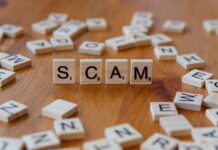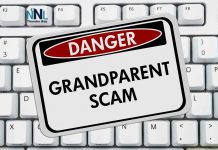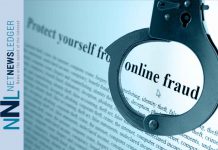The holidays are approaching, but scammers aren’t taking any breaks from their attempts to trick you into handing over money or personal information. Scammers prey on the increased financial pressures that many of us face around the holidays, so it’s important to be aware of how and when the Canada Revenue Agency (CRA) will contact you to distinguish legitimate communications from the CRA, and scams.
How to make sure the caller is a CRA employee and not a scammer
A legitimate CRA employee will identify themself when they contact you, providing you with their name and phone number to call them back, if needed.
If you’re suspicious, you can make sure the caller is a CRA employee before providing any information over the phone.
Here’s how:
- Tell the caller you would like to first verify their identity.
- Request and make a note of their:
o name
o phone number
o office location - End the call. Then check that the information provided during the call was legitimate by contacting the CRA. Please do this before you give any information to the caller.
Once you complete these three steps, you can call the CRA employee back to discuss the reason for their call.
Note that our individual tax, benefits, and business enquiries lines offer an automated callback service. When wait times reach a certain threshold, you have the option for a callback, rather than waiting on hold. If you opt for a callback, we will give you a randomized four-digit confirmation number. This number will be repeated back to you by the call centre agent at the time of the callback. This is to provide you with assurance that the call comes from a legitimate CRA employee.
When to be suspicious
Red flags that suggest a caller is a scammer include, but are not limited to, the following:
- The caller does not give you proof of working for the CRA. For example, their name and office location.
- The caller pressures you to act now, uses aggressive language, or issues threats of arrest or sending law enforcement.
- The caller asks you to pay with prepaid credit cards, gift cards, cryptocurrency, or some other unusual form of payment.
- The caller asks for information you would not enter on your return or that is not related to money you owe the CRA, for example, a credit card number.
- The caller recommends that you apply for benefits. Do not provide information to callers offering to apply for benefits on your behalf! You can apply for benefits directly on Government of Canada websites or by phone.
For more tips and helpful information, visit our Be Scam Smart page.
We may review your return
One reason we may contact you is if we are reviewing your income tax and benefit return. This could include reviewing your GST/HST, T4, or T5 information. You may receive a letter or a phone call telling you that the CRA is reviewing your return. If your correspondence preference is set to electronic mail, we will send you an email telling you that your letter is available in My Account.
Scammers are also trying to trick people into clicking links by sending fraudulent emails and text messages. To know what to expect when the CRA contacts you, what we may or will not ask for, as well as examples of recent CRA-related scams, visit the Scam prevention at the CRA page.
In most cases when we are reviewing a return, it is a routine check. Replying and sending all of the information requested as soon as possible will help us review your file quickly and easily.
It’s also important that you call the number printed in your letter for either of the following situations:
- You can’t get the documents we’re asking for
- You need more time to reply
By calling, we can give you more time to respond if you need it. We can also help you if you have any questions. If you don’t reply, we may disallow a claim of yours and you could have a balance owing.
If you own a small business or are self-employed, we may call you or send you a letter to offer free tax help through our Liaison Officer service. We will only use email to contact you if you provide your email address and consent to the CRA.
Reporting a potential scam
You should report a scam if you suspect either of the following:
- you have been the victim of fraud
- a scammer has tricked you into giving personal or financial information
To report a scam, visit the Canadian Anti-Fraud Centre page, follow the instructions on our Be Scam Smart page, or call 1-888-495-8501. If you think you may be the victim of fraud or you unknowingly provided personal or financial information, contact all of the following:
- your local police service
- your financial institution
- credit reporting agencies
You should contact the CRA if you:
- think your CRA user ID or password has been compromised
- want to disable online access to the CRA’s sign-in services
- want to enable online access to CRA sign-in services after it has been disabled
Stay connected
- Follow the CRA on Facebook
- Follow the CRA on Twitter – @CanRevAgency
- Follow the CRA on LinkedIn
- Follow the CRA on Instagram
- Subscribe to a CRA electronic mailing list
- Add our RSS feeds to your feed reader
- You can also watch our tax-related videos on YouTube
SOURCE Canada Revenue Agency






